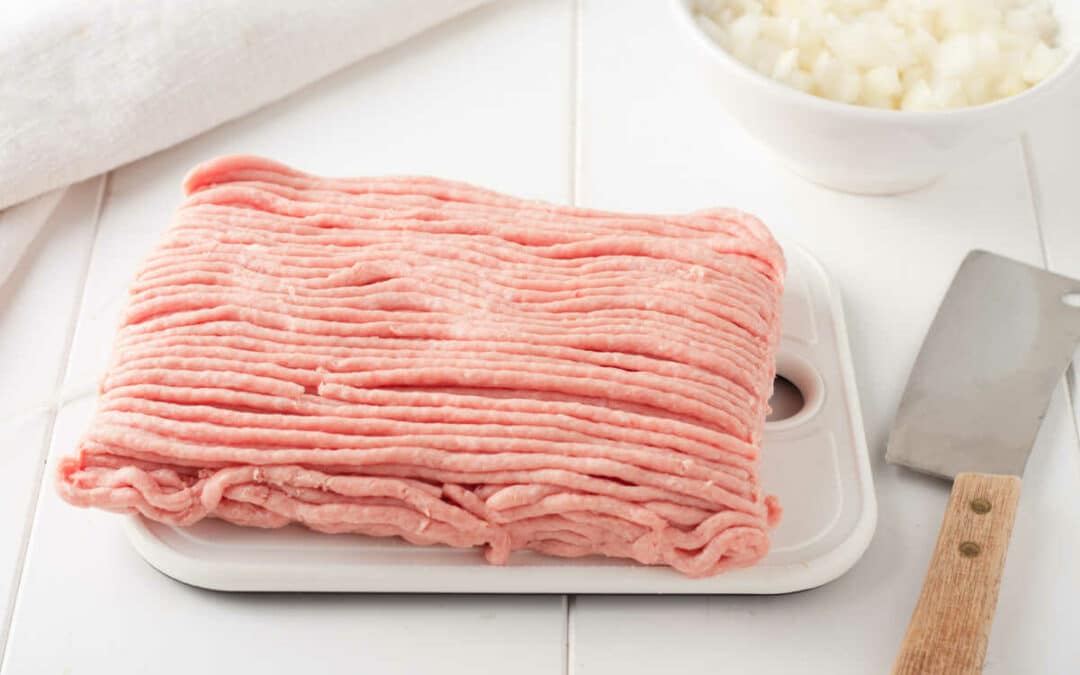Table of Contents
Can You Grill on Rusty Grates?
There are times in your life when you want to barbecue, but life gets in the way.
Finally, you take out your grill after several months and decide to grill a lovely piece of meat. Just when you’re about to do that, you notice that the grates are rusted! Now, the question is – can you grill on rusty grates? Is it even safe?
It’s safe to grill on rusty grates and is not known to cause any medical complications, like tetanus. However, too much rust can adversely affect the flavor of your meat, and impart a metallic taste to it.
If you want to know more about how to grill on rusty grill grates, read on!
Is It Safe to Grill on Rusty Grates?
Grilling on a rusty grill can become a controversial topic. Some believe that rusty grill grates may cause you to consume iron, which can affect your health.
Similarly, there are some who also believe that rusty grates may lead to major complications, like tetanus.
After extensive research, I’ve found that rusted grill grates are safe to use.
Rust is a form of iron oxide. So, it won’t be creating any problems and the meat is safe to consume in little amounts. Do note that an excessive amount of iron oxide is harmful. So, you should limit the use of rusty grates and clean the rust off your grill grates.
Another concern people have is whether they could get tetanus if they cook on a rusty grill.
The truth is that rust or rusty grates don’t cause tetanus. Instead, it is caused by the bacteria residing in soil, dirt, and other dusty places.
Also, when you grill at high temperatures, it will usually kill these bacteria, and prevent the risk of tetanus.
Best Ways to Clean Rusty Grates
Even if rusty grates are safe for grilling, too much rust can impart a metallic taste to your meat. It can also cause the heat to not spread evenly. So, it’s best to clean rust on grates before grilling.
Given below are the best ways to remove rust from your grill grates.
1. Use Vinegar-Salt Solution
Vinegar is my ultimate fix-it for everything! It’s great for rust removal, and disinfecting the grates till they’re sparkly clean. Additionally, the gritty nature of salt also helps in cleaning dirt and rust.
Here’s what you need to do.
- Add one cup of salt to two cups of white vinegar in a bowl.
- Then, take a garbage bag, add your grates to it, and pour the solution on it.
- Allow the grates to soak the solution overnight.
- You can also keep it for more time if the grates have too much rust.
- Then, remove them, and use a towel to clean your grates.
This is one of the most effective methods for cleaning rusty grates, as white vinegar is an excellent cleaner.
2. Use Dish Soap and Potato
If you don’t have vinegar, you can simply go for a bar of dish soap and potato to remove rust.
Yes, I know you might be wondering why you should be using a potato. It is because a sliced potato can act as a gentle cleaning pad with dish soap.
Here’s what you need to do.
- Slice the potato in two halves.
- Dip the exposed end of the potato in the dish soap.
- Then, clean the grates gently with the potato.
- Scrub the grates clean until you don’t see any rust spots.
As per my experience, this method only works when you’ve small rust marks and spots on the grates. It’s not suitable for grates with heavy rusting.
3. Use a Wire Brush
If you don’t want to use any solution for cleaning the grates, a wire brush or steel wool can do the job for you.
As the name suggests, a wire brush is a cleaning brush, but it contains steel wire bristles. These are great for removing stubborn rust stains.
All you have to do is place the grates on a flat area and scrub the grates with the wire brush. Then, clean them with a towel or a cloth.
Note that you shouldn’t use a wire brush too frequently for rust removal. As it is coarse, it can damage your grates in the long run.
4. Use Lemon Juice and Baking Soda
Another rust remover alternative to the vinegar-salt solution is the lemon-baking soda solution. It works in a similar way to the vinegar-salt solution, as lemon provides the acidity, and baking soda acts as an abrasive. It can remove the rusty surface and keep your grill brand new!
Here’s what you need to do.
- First, add two cups of baking soda to one cup of lemon juice.
- Next, apply the paste to the rusty grill.
- Let them sit like that for 30 minutes. You can keep it on for more if there’s a lot of rust.
- Then, use a soft-bristled brush to scrub the rust off your grill and remove it.
- You can repeat the steps until you completely clean your grill and get satisfactory results.
5. Use a Sandpaper
Sandpaper is the most effective, but also the most damaging way to clean rusty grates. I only recommend it if the other methods aren’t working for you.
As sandpaper consists of abrasive material, it removes stubborn rust stains easily. However, its abrasive nature can also end up damaging the grates.
Here’s how you can clean using sandpaper.
- First, take sandpaper and wrap it around the rust on your grill.
- Move it up and down the rusty area to remove rust.
- Repeat the steps for all the rust on your grates.
Apart from these methods, you can also go for commercial rust removers. These contain chemicals to break down rust and clean the grates.
How to Avoid Rust on Grates?
In the long run, it is almost impossible to protect grates from rusting. Yet, there are ways to avoid rust formation if you use your grates frequently and maintain your grill.
1. Season Your Grill Grates Before Grilling
If you want to create a protective barrier to prevent rust from forming in the metal, always go for seasoning. It also helps in making the grates non-stick and prevents the food from sticking to them.
So now, how are you supposed to season the grates?
You just need to pick an oil with a high-smoking point like canola oil, vegetable oil, or peanut oil. Then, apply a layer of oil to the grates when they’re heated before cooking anything on them. Now, you won’t have to worry about putting your food onto the rusty grates again!
2. Clean Your Grill Grates After Using
I know that once grilling is done, you just want to relax and sit with your friends or family.
But, hear me out!
It’s best to clean your grill as soon as possible and remove all the food particles sticking to them right after using it.
You just need to allow the grates to cool down. Then, use a damp cloth or soft-bristled brush to scrub and remove the leftovers.
I also recommend applying a little covering of vegetable or olive oil to prevent rust before storing them. This prevents the buildup of rust, as oil locks in the moisture!
3. Store the Grates Well
A part of protecting your grates from rusting is to store them well.
It’s best to invest in a grill cover, which can protect your grill from gathering any dust or dirt.
You’ll find various options in the market, such as polyester grill covers and vinyl grill covers, which are great options to prevent rust. Polyester ones aren’t waterproof, whereas vinyl ones are. But, vinyl ones get easily damaged, if you store them in high temperatures or heat.
Also, ensure that you store the grill grates in a dry and cool environment. Exposure to rain, snow, or humid conditions can increase the chances of rusting.
4. Get a Grill Mat
If you’re not a traditionalist, you can opt for a grill mat. The whole purpose of a grill mat is to cover the grill grates, protect them, and reduce the additional cleaning time.
As there are no food remains on the grates, there are not many chances of rusting either.
Note that grill mats are good for light barbeques. If you want your meat to be crispy and have a grilled texture, grill mats aren’t for you.
When Should You Replace Rusty Grates?
Every type of grill grate has its own lifetime. For instance, stainless steel grates last for 10 to 15 years, whereas cast iron grills can even last for 20 years or more. Hence, a lot of people opt for cast iron grates as they last longer, are easy to clean, hold the heat well, and much more.
However, whether you are using stainless steel or cast iron grates, there are a few times when your grill grates are beyond saving! So, no matter how hard you scrub to get the rust off, the grates won’t be as effective as before.
Let’s take a look at a few signs which show that your grates need replacing.
- Grill grates may get rusted, but if none of the cleaning methods are working to remove the rust covering your grill, you need to replace them.
- If the grates have developed cracks, and become brittle, they’ll cause the food to stick, and lead to uneven grilling.
- If you notice that your food is not grilling properly or taking a lot of time to cook, it’s best to replace the rusty grill.
Final Thoughts
Grilling on rusty grates once or twice isn’t something that will lead to health complications in the future. However, it can affect the flavor and texture of your food.
To be on the safe side, it’s also best to not cook on a grill with rust on it frequently, as iron oxide may accumulate in your body, and cause health issues.
Related Questions
Can you put foil over rusted grill grates?
You shouldn’t put aluminum foil over rusted grill grates. It can restrict the air from flowing into the grill, and may also lead to a fire hazard.
Why do my grill grates keep rusting?
Your grill grates keep rusting because the chromium layer gets removed from the grates. This can happen due to leftover food particles and exposure to moisture (high humidity, rain, and snow).






0 Comments